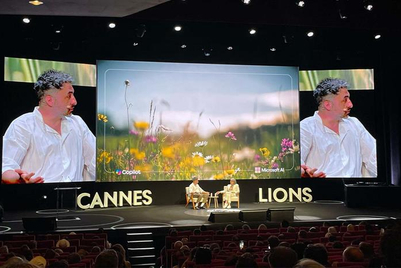
The theme of 2023 is AI, in everything. From Patron’s personalised AI margaritas, to Shopify and Coca-Cola exploring chatbot innovation with the latest ChatGPT updates, brands have been keen to integrate this fast-evolving technology into their latest campaigns.
But jumping in headfirst isn’t the way.
The recent backlash against Levi’s AI-generated models highlights the importance of genuine consideration before leveraging AI. Because sometimes, there’s just no need.
Levi’s intentions to advance DE&I within its marketing through AI may have been genuine but its actions have caused more harm than good.
This isn’t the first time emerging technology has been misused in the fashion world. Vogue Brazil made a similar decision in leveraging AI models instead of hiring real, diverse talent. And the backlash surrounding virtual influencer Lil Miquela has similar echoes, with followers accusing her creators of queerbaiting in a Calvin Klein ad and making up "relatable" traumatic events in her backstory for clout.
Not only do these uses of AI create real damage to real people and important causes but they also spin damaging narratives around technologies that truly have potential for good.
The reality is: it’s a great idea to give shoppers the ability to create themselves as an avatar to see what they’d look like wearing potential purchases, but using AI to create digital models when brands could be giving real diverse models a platform just widens the gap in a world where equality and inclusion is still a huge problem.
So how can brands avoid falling into this trap in the future?
The key, in the face of AI’s zeitgeist appeal, is adopting a "think before you build" attitude, while weighing up the true value-add of this technology versus its consequences. But what needs to be considered?
Will using AI hurt someone or something in the real world?
There’s always a conversation around ethics and responsibility when it comes to AI. But the tech itself isn’t necessarily the problem; the real problem is the bias or intent behind the creation. Brands need to be prepared to discuss these potential issues and fully investigate whether their intended use of AI is harmful to any cause or person.
Right now, for instance, we’re seeing much debate around the ethics of generative art – from questions around AI image generators such as Midjourney, to David Guetta "faking" Eminem’s voice in a set.
Is your main goal a PR headline?
If the answer is yes, you might want to think again. Using AI simply to gain hype or be first to market is a knee-jerk reaction.
And, as we’ve seen, not all press is good press. Tech like AI should not just be used for the sake of it, it needs to have a deeper reason, such as solving a core user problem or telling a meaningful story. Expedia and Kayak exploring helpful ChatGPT-powered travel suggestions are great examples of brands using AI for more than just the PR clout. A carefully thought-through, authentic use of the technology will always come out on top.
Does AI actually make the experience better?
Integrating artificial intelligence when it’s clear a human can do the same task can be a problematic area. In some cases, AI can legitimately offer a faster, more efficient service when used in the right way, such as processing far more data than a human mind possibly could, or making accurate predictions.
Campari’s ode to Federico Fellini used AI to analyse each of the director’s past scripts and make suggestions for a new short film, which it then helped to script and pre-visualise along with a team of human creatives. The key here is human collaboration.
Can an AI be intrinsically creative itself? Maybe not – but when used as a collaborative tool, it can offer new ways to complete processes which in turn gives humans more freedom to create.
Where do we go from here?
Experimentation is often the best way to learn. But when it comes to AI and its fast-moving, far-reaching nature, it’s critical to take the time to properly understand the technology and its impact on business, audience and reputation.
We’re looking forward to more brands getting it right and sending a wave of inspiring use cases across the industry that allow the real benefits of AI to shine through.
Rosie Copland is strategy director at Unit9



.jpg&h=334&w=500&q=100&v=20250320&c=1)



.png&h=334&w=500&q=100&v=20250320&c=1)

.png&h=334&w=500&q=100&v=20250320&c=1)

.png&h=334&w=500&q=100&v=20250320&c=1)

.jpg&h=268&w=401&q=100&v=20250320&c=1)


.jpg&h=268&w=401&q=100&v=20250320&c=1)
.jpg&h=268&w=401&q=100&v=20250320&c=1)
.png&h=268&w=401&q=100&v=20250320&c=1)

